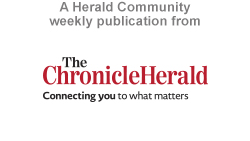The loss of the letter
Glen Murrant
Thanks for the cat videos. Thank you for all the pictures of your protein smoothies and for letting me know that you worked out this morning. Thank you especially for inviting me to play Candy Crush Saga. And thank you, really, for your latest selfie — I almost forgot what you looked like.
Facebook, like the Internet itself, has a lot of promise. It has the potential to allow people to reconnect and share aspects of their lives with loved ones across great distances. It allows for a cultural exchange of ideas, art and information.
It provides a network through which millions of strangers can unite as one to accomplish what they cannot do alone.
Just like the Internet, however, Facebook is a cultural mirror. It shows us exactly who we are — what we like, what we desire and what we believe. For those willing to look beyond the trees to see the whole forest, Facebook is an unflatteringly accurate reflection of modern society — narcissistic, self-centric, superficial. There can be no other explanation for the volume and nature of the content we share. To look at Facebook is to see the world as the backdrop to somebody else’s selfie. Intelligent expression has been reduced to little more than an endless barrage of witty and sarcastic captions typed across photos of famous faces.
I recently came across a news story about a collection of letters that had been written by Albert Einstein to his friends and colleagues over the course of his career. I read some of them. Combined, they are the portrait of a man — fiercely intelligent, romantic, humorous, compassionate. In the age of Facebook, we have stopped writing letters, and in doing so, we have lost a gift of immeasurable value.
In this Facebook-ized society, we are having fewer and fewer meaningful conversations. As a result, we are not only depriving ourselves of the opportunity to interact on a deeper level with others, but we are also depriving future generations of something that our generation takes for granted — letters. Thanks to ink and paper, we presently enjoy a rich, historical record of insightful dialogue and the exchange of original ideas. It is highly doubtful that scholars in the next century will have the patience or inclination to sift through trillions of Facebook posts. And if they do, what will they find?
I have long believed that the greatest strength of the human species is our ability to communicate, to share complex and meaningful ideas so our accomplishments can be reproduced by others for the betterment of all.
By design, Facebook is the ideal tool for us to do just that — to express our creativity and share our intelligence. So, to that end, I’ll refrain from sharing a pictures of my breakfast and quotes from my cat.

